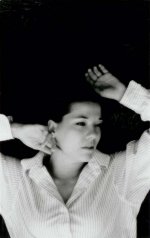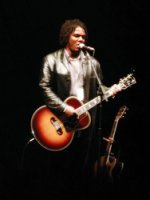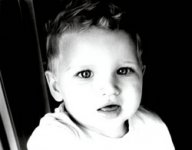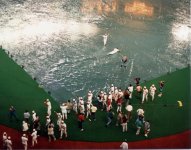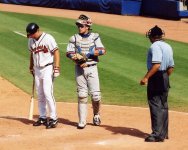Jazz said:There are so many guys with cool photos of their cues ...
I really liked the "Photographing cue photos" and want to take somewhat decent photos of my cues.
What cameras, specs and etc do you recommend?
For beginner or intermediate photographers? Does it have to be SLR? I assume wide angle lense and optical zoom?
recommendation below $500?
below $1k? above $1k?
Thanks in advance .. I have really old 2 megapixel Canon ELP with really crappy battery life
The photo's on my site were taken with my old set up, just a Canon S30 with no other equipment. It shows. The photo's I am taking now are a lot better and I will eventually replace them on my site.
Photography is a skill and takes a lot of practice. The equipment matters but it's kind of like pool in the sense that it's the player, not the cue.
I have a Canon G6, 7 megapixels, and I think it's fine for this sort of thing. I think you can pick them up for $500 - $600 new. The new batteries really last a long time.
7 Megapixel photo files are huge, so make sure you have a fast computer or a memory card reader for it. The larger the memory card, the better by the way. The reader is only about $20 and it will make downloading the photos to the computer a lot faster and save your camera battery. They plug into the USB port and act as a separate drive.
I've learned that the camera has far more capabilities than I do as a photographer. Operating this kind of digital camera can range from simple to quite complex. The G6 allows you to make many choices and adjustments. It's quite an advanced camera really. The pros could take a G6 and some lighting equipment and really turn out some great shots.
For general photography and portraits, I would also buy their $150 speedflash attachment with a diffuser box attachment. Jeff has suggested a circular polarized lens for glare reduction - these are only $20 - $40.
Lighting is really important in photographing cues. If you want to really get into photographing cues, you should look into some light stands with diffusers. These are as inexpensive as $100 each with different choices of bulbs. 500 watt are not too much. You will also need a tri pod - and I would say an overhead arm for it.
This will get you started for under $1000. If you want to advance from there, the lighting is where you can go. This kind of camera is plenty for the better amatuer photographer who wants versatility and performance at moderate cost.
I would find a local camera shop to buy your stuff. The guys there can help with explaining things you might need help with as you get better and better.
Chris

